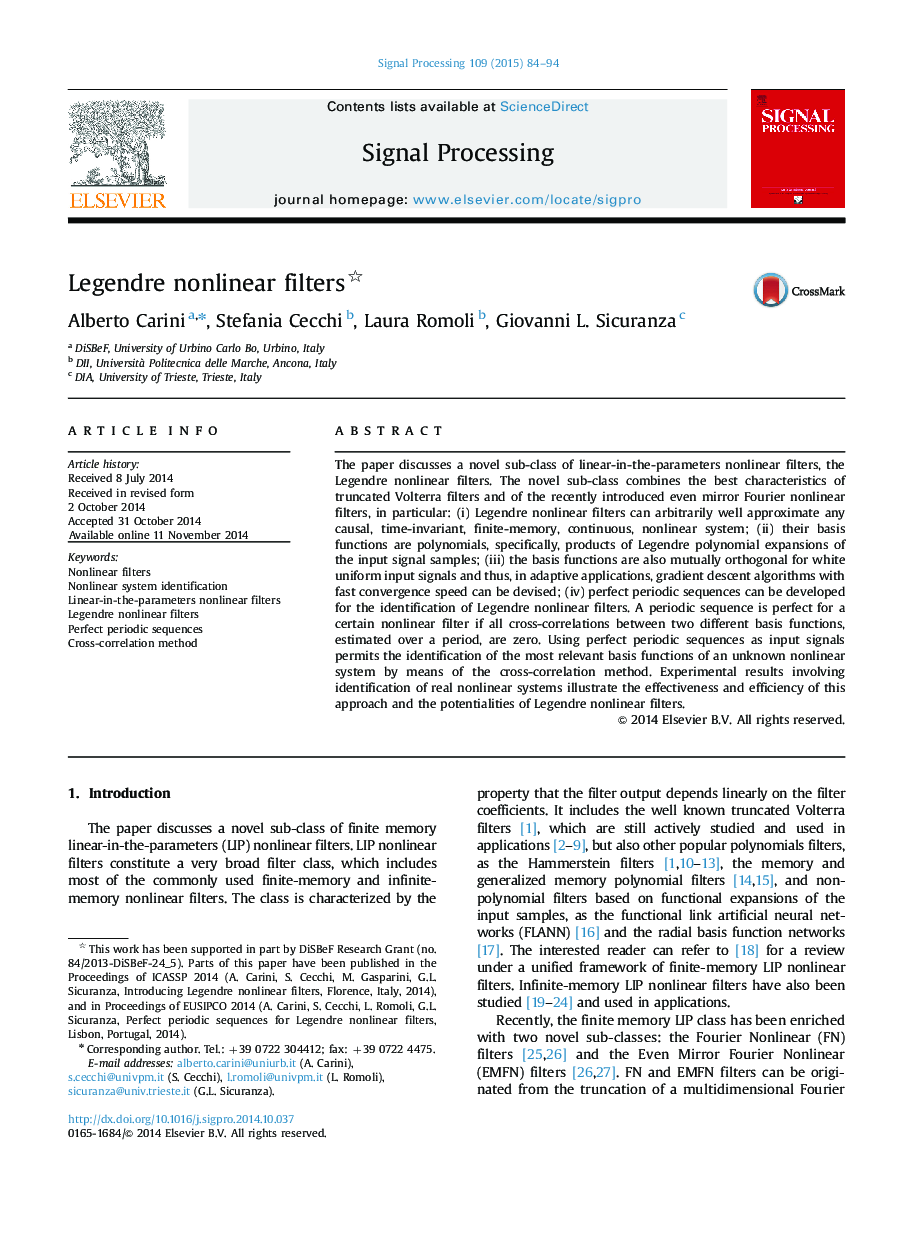| کد مقاله | کد نشریه | سال انتشار | مقاله انگلیسی | نسخه تمام متن |
|---|---|---|---|---|
| 562880 | 1451958 | 2015 | 11 صفحه PDF | دانلود رایگان |
• The paper discusses Legendre nonlinear (LN) filters.
• LN filters arbitrarily well approximate any finite-memory continuous nonlinear system.
• The basis functions are mutually orthogonal polynomials for white uniform inputs.
• Perfect periodic sequences (PPSs) can be developed for their identification.
• PPSs permit us to identify unknown systems by means of the cross-correlation method.
The paper discusses a novel sub-class of linear-in-the-parameters nonlinear filters, the Legendre nonlinear filters. The novel sub-class combines the best characteristics of truncated Volterra filters and of the recently introduced even mirror Fourier nonlinear filters, in particular: (i) Legendre nonlinear filters can arbitrarily well approximate any causal, time-invariant, finite-memory, continuous, nonlinear system; (ii) their basis functions are polynomials, specifically, products of Legendre polynomial expansions of the input signal samples; (iii) the basis functions are also mutually orthogonal for white uniform input signals and thus, in adaptive applications, gradient descent algorithms with fast convergence speed can be devised; (iv) perfect periodic sequences can be developed for the identification of Legendre nonlinear filters. A periodic sequence is perfect for a certain nonlinear filter if all cross-correlations between two different basis functions, estimated over a period, are zero. Using perfect periodic sequences as input signals permits the identification of the most relevant basis functions of an unknown nonlinear system by means of the cross-correlation method. Experimental results involving identification of real nonlinear systems illustrate the effectiveness and efficiency of this approach and the potentialities of Legendre nonlinear filters.
Journal: Signal Processing - Volume 109, April 2015, Pages 84–94
